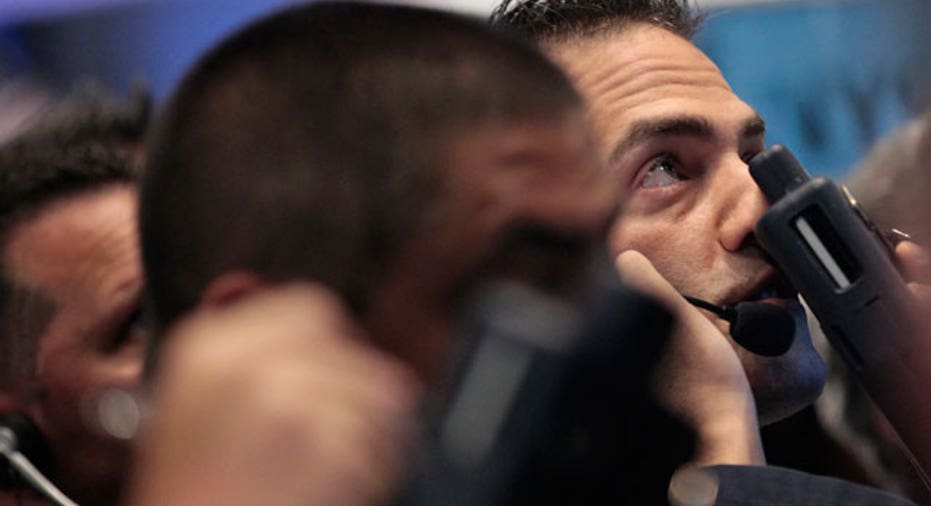Markets Stall Near Multi-Year Highs

FOX Business: Capitalism Lives Here
The S&P and Nasdaq both ran out of momentum after climbing to multi-year highs last week. Energy stocks struggled on the day, while financial and utility stocks performed the best.
Today's Markets
The Dow Jones Industrial Average fell 21.9 points, or 0.16%, to 13971, the S&P 500 dipped 0.92 point, or 0.06%, to 1517 and the Nasdaq Composite slumped 1.9 points, or 0.06%, to 3192.
The S&P closed at its highest level since 2007 last week, while the tech-heavy Nasdaq logged its best close since 2000. A round of upbeat trade data from the U.S. and China -- the world's two biggest economies -- helped push the market gauges to those levels Friday.
The week was off to a relatively quiet start Monday, with Chinese markets closed for the Lunar New Year and Japanese markets closed for National Foundation Day.
The energy sector was the worst performer on the back of a mixed session in the energy futures complex. On the other end of the spectrum, financial, utility and technology issues performed the best.
With no major U.S. economic reports on tap, traders watched the first day of a Eurogroup meeting and commentary from Federal Reserve Vice Chairman Janet Yellen.
Yellen, in a speech in Washington, D.C., said the central bank plans on continuing its highly-accommodative monetary policy stance until the economy begins growing and creating jobs at a much faster clip. Peter Newland, an economist at Barclays, called the speech "characteristically dovish."
The Eurogroup, which consists of eurozone finance chiefs, was expected to discuss the rapid advance in the euro versus other world currencies. The worry among some countries, like France, is that the stronger euro will make their exports less competitive an add yet another drag to the already shaky economy. The European Central Bank has been reluctant to directly address the euro, although President Mario Draghi did say at a press conference last week that the exchange rate is important.
Big swings in the euro, especially against the U.S. dollar, tend to have a significant impact on commodities, which can spark a chain reaction that cascades into equities.
The focus on politics will continue into the middle of the week, with President Barack Obama set to deliver his State of the Union address on Tuesday.
Elsewhere, in corporate news, Nasdaq OMX Group (NASDAQ:NDAQ) held talks with private-equity heavyweight Carlyle Group (NYSE:CG) for a potential take-private deal, FOX Business' Charlie Gasparino reported.
Apple (NASDAQ:AAPL) was said to be mulling creating a smart-watch type of device, according to a report by the Wall Street Journal. Boeing (NYSE:BA) conducted test flights of its Dreamliner 787 Monday and over the weekend in hopes of gleaning more information about the plane's batteries.
Commodities were mixed. The benchmark U.S. oil contract jumped $1.31, or 1.4%, to $97.03 a barrel. Wholesale New York Harbor gasoline sold off by 1.2% to $3.021 a gallon. Gold slumped $17.80, or 1.1%, to $1,649 a troy ounce.
Foreign Markets
The Euro Stoxx 50 fell 0.29% to 2623, the English FTSE 100 climbed 0.21% to 6277 and the German DAX dipped 0.24% to 7634.
Markets in China and Japan were closed for holidays.



















